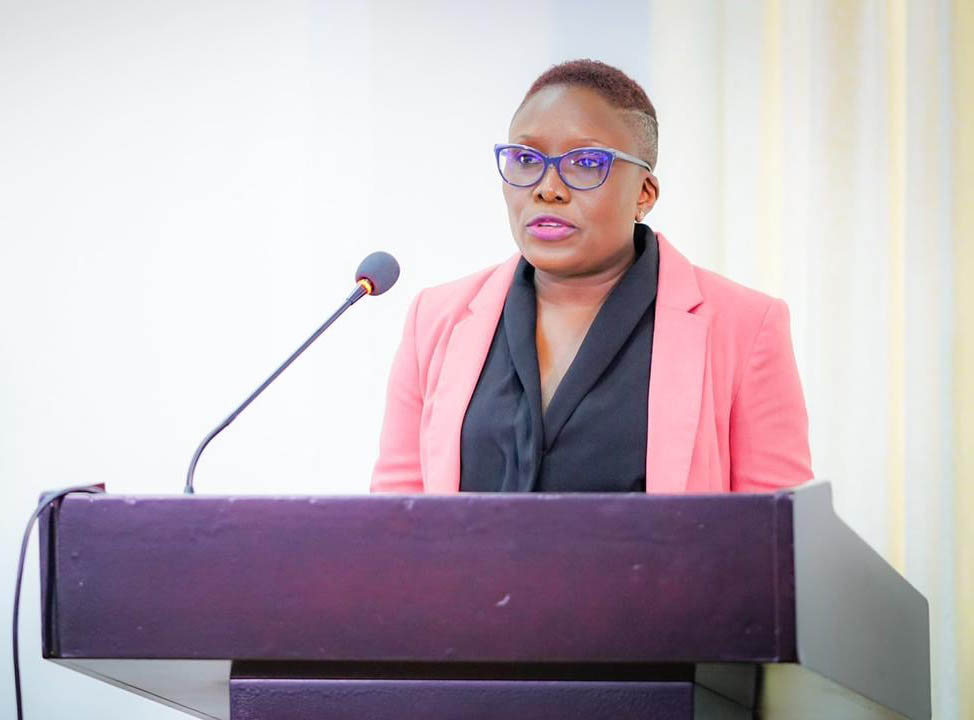The Ministry of Education (MoE) on Wednesday unfurled a range of programmes for students along with a teachers’ welfare initiative.
At the launch of Education Month at the Arthur Chung Conference Centre (ACCC) at Liliendaal, the MoE announced that it will be inaugurating several programmes during Septem-ber. The theme for Education month is “Education for all: innovative teaching and learning during a global pandemic”.
In September, the ministry intends to continue its vaccination drive targeting students ages 12 to 17. According Minister of Education, Priya Manickchand, some 350 students were on Wednesday vaccinated at Queen’s College, while teachers also lined up to get their second dose of the Sputnik V jab.
The country will be celebrating 45 years of nursery education and there will also be a launch of the teachers’ Welfare and Sup-port Programme on September 15, at the ACCC. In addition, a disaster risk management policy will be rolled out two days later, and a SEN Strategic Action Plan will also be initiated on September 28. “Spell it” and a National Signing BEE competition are expected to be held on September 20 and September 22, respectively. Virtual consultations will then be held on September 29, while a virtual song festival is expected to be held on the last day of the month. A regional impromptu speech competition will be convened on October 1.
The Ministry also took the opportunity to launch its Education Strategic Plan for 2021-2025. According to the Minis-try’s Chief Planning Officer, Nicola Johnson, following consultations with stakeholders, a review by the World Bank, World Health Organisation and other recognised global advisors, the plan was created to provide opportunities for quality, equitable education and lifelong learning for all. The goal, she said, is to contribute to employability and reduction of poverty by increasing performance at all levels and reducing the gulf between sub-groups. Johnson gave a briefing on the strategic priorities, which she said are intended to improve governance and accountability with the target being to ensure that management at a regional level is strengthened by 2025. Johnson disclosed that an integrated management system is expected to be fully functioning by this time. She noted that the integrated system will allow for real time access to information, planning and decision making and accountability in the sector. The ministry hopes to have improved performance at all levels by 2025. According to the Planning Officer, improvement of students’ performance across all levels by 2025 is a priority.
Johnson also added that teachers must undergo a minimum 30 hours of continuous professional development every year. She then noted that some key outputs are to ensure the new curriculum is implemented and that digital literacy programmes at primary and secondary levels are developed. Another facet of the plan deals with improving the efficiency of the education system. This means having the ability to ensure that students who enter primary and secondary levels, complete the programme. It also means that the welfare programme must expand. She highlighted the “Because we care” cash grant as an example. Another part of the plan is to reduce inequities in the education spectrum in order to reduce the performance gap at the national and regional level. Johnson said that the ministry will ensure that students in the hinterland and riverain areas will be able to perform just as well as the students on the coast, while students with sensory disabilities are able to participate in national and regional assessments by 2025. This aims to show equitable resourcing and delivery across education districts.
The education ministry is also working to contribute to lifelong learning and employability by ensuring that post-literacy and skills programmes are developed for the targeted population by 2025. Johnson explained that the outcome would be to ensure that at least 50 per cent of the graduate output of TVET institutions are employed and 30 per cent of youths are participating in the skills training and formal sectors.
During the delivery of the plan, Manickchand noted that schools have been closed for 17 months and this equates to the loss of one year of quality learning. She also stated that the students in Amerindian villages and hinterland communities were most affected because of infrastructure deficits. Hence it is necessary that the parents and teachers work along with the ministry and understand the different demands the coastland students have which differ from the demands of the hinterland students. “Today we are acutely aware to both recognise and effectively address the contextual realities of our varying educational environments. What we do in Waramadong cannot be the same as what we do at Stella Maris if we want the same outcome from those students.”






